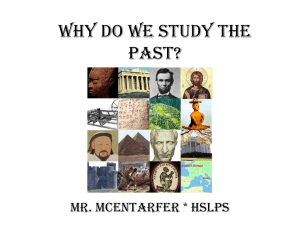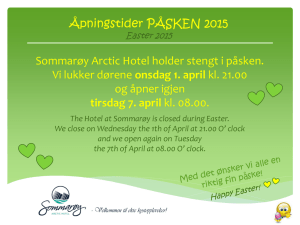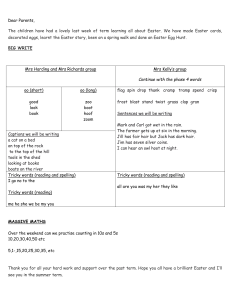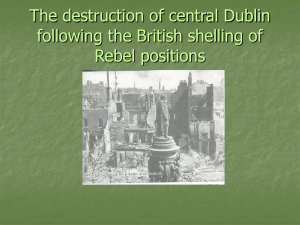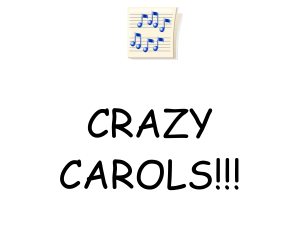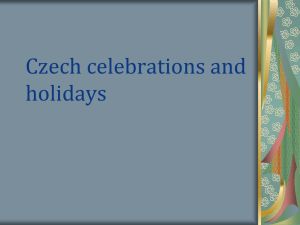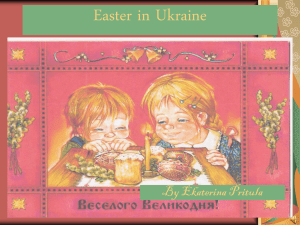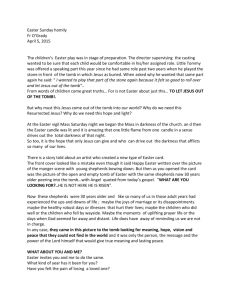Easter-Day-2014
advertisement
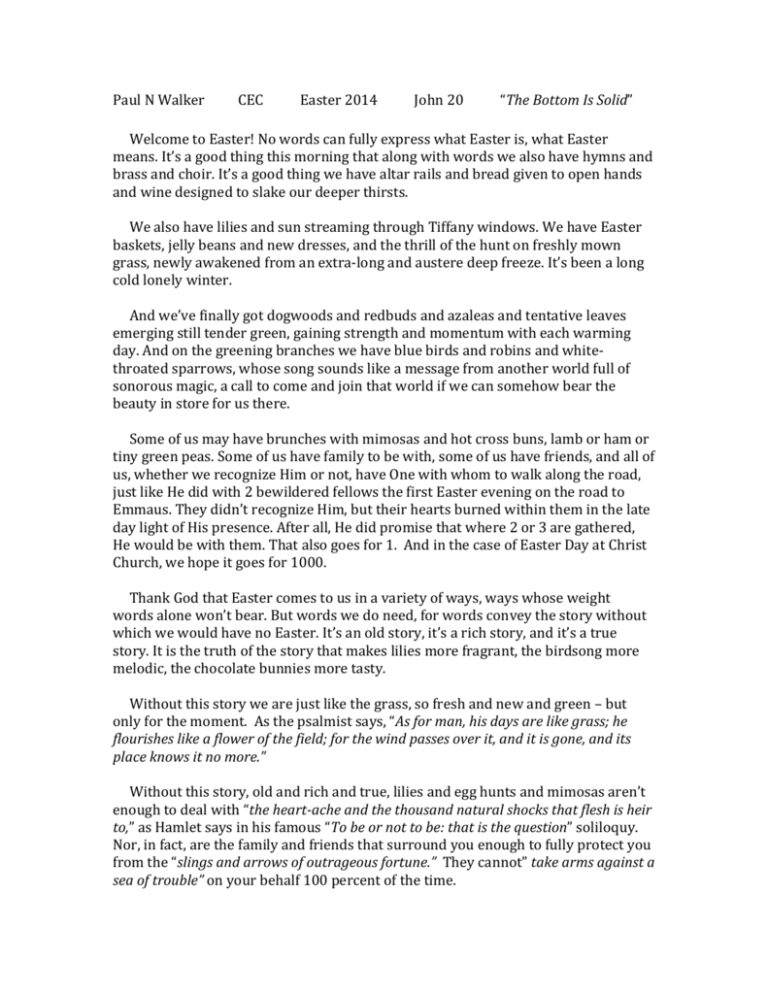
Paul N Walker CEC Easter 2014 John 20 “The Bottom Is Solid” Welcome to Easter! No words can fully express what Easter is, what Easter means. It’s a good thing this morning that along with words we also have hymns and brass and choir. It’s a good thing we have altar rails and bread given to open hands and wine designed to slake our deeper thirsts. We also have lilies and sun streaming through Tiffany windows. We have Easter baskets, jelly beans and new dresses, and the thrill of the hunt on freshly mown grass, newly awakened from an extra-long and austere deep freeze. It’s been a long cold lonely winter. And we’ve finally got dogwoods and redbuds and azaleas and tentative leaves emerging still tender green, gaining strength and momentum with each warming day. And on the greening branches we have blue birds and robins and whitethroated sparrows, whose song sounds like a message from another world full of sonorous magic, a call to come and join that world if we can somehow bear the beauty in store for us there. Some of us may have brunches with mimosas and hot cross buns, lamb or ham or tiny green peas. Some of us have family to be with, some of us have friends, and all of us, whether we recognize Him or not, have One with whom to walk along the road, just like He did with 2 bewildered fellows the first Easter evening on the road to Emmaus. They didn’t recognize Him, but their hearts burned within them in the late day light of His presence. After all, He did promise that where 2 or 3 are gathered, He would be with them. That also goes for 1. And in the case of Easter Day at Christ Church, we hope it goes for 1000. Thank God that Easter comes to us in a variety of ways, ways whose weight words alone won’t bear. But words we do need, for words convey the story without which we would have no Easter. It’s an old story, it’s a rich story, and it’s a true story. It is the truth of the story that makes lilies more fragrant, the birdsong more melodic, the chocolate bunnies more tasty. Without this story we are just like the grass, so fresh and new and green – but only for the moment. As the psalmist says, “As for man, his days are like grass; he flourishes like a flower of the field; for the wind passes over it, and it is gone, and its place knows it no more.” Without this story, old and rich and true, lilies and egg hunts and mimosas aren’t enough to deal with “the heart-ache and the thousand natural shocks that flesh is heir to,” as Hamlet says in his famous “To be or not to be: that is the question” soliloquy. Nor, in fact, are the family and friends that surround you enough to fully protect you from the “slings and arrows of outrageous fortune.” They cannot” take arms against a sea of trouble” on your behalf 100 percent of the time. In fact, it may just be your family who wields the bow and arrow, who makes you walk the plank into the sea of trouble. But, even if you are blessed with good and loving family and friends, no one is immune from the “whips and scorns of time, the oppressor’s wrong”…. and “the pangs of despised love.” Even if your problems aren’t of Shakespearian proportion, you still have to deal with taxes, bad moods, and car trouble. Or maybe it’s just the persistent unsettling pang that though you are told to “be all that you can be,” you just keep falling short. Hamlet’s “to be” option is no walk in the park. But let’s just entertain the notion that you are one of the lucky ones whose life has not been brushed with grief or betrayal or loneliness. Even you have the same end coming to you that awaits everyone. You too will die. You too will “shuffle off your mortal coil” and go “to that undiscovered country from whose bourne no traveler returns.” “Not to be” will no longer be a question, but a certainty. A Tiffany window won’t help you then and there, and that is why we need our Easter story, old and rich and true. Our story is a story like no other. It’s the story of our God becoming a man for no other reason than to love us and save us. He did not come to nag us, improve us, or condemn us. He came to become one of us, to experience what we experience, to “grunt and sweat under a weary life”. During that life he told us true stories, stories like the songbird, calling us into a better and more beautiful world. But we didn’t listen, so on Good Friday, we sent him violently into the sleep of death and sealed him in a stone cold tomb. And we all walked away from him, back to our homes. That is our story at it’s darkest. The point of Hamlet’s soliloquy is that we would choose not to be if weren’t for the fear of what lies beyond the grave. “For in that sleep of death what dreams may come” – bad dreams, perhaps, nightmares. And “that makes us rather bear those ills we have than fly to others that we know not of.” And that’s where our story picks back up this morning, “while it was still dark.” Two women come to the tomb to anoint Jesus’ body, as was the Jewish custom for caring for the dead. But lo and behold, He is not there! He has been raised from the dead! Hamlet did not reckon or remember him, for Jesus is the one traveler who has returned from the undiscovered country of death. And, for real too. Not as a spirit or wish fulfillment or symbol of the earth’s renewal. He stands right outside the tomb and says “Mary!” And Mary throws her arms around Him and holds on for dear life. Mary holds him, although Death could not. That is the crux of our story. Since death has no hold on Him, death also has no hold on you. What does this mean for us this Easter morning? Robert Capon, a hero of ours who died this past year, comments on our story. He says, “with nails through his hands and feet, at three o’clock on a dark Friday afternoon, he will die our now unmanageable death, take our disastrous knowledge of good and evil down into the darkness of his dead human mind, and by refusing to play God by our rules, he will restore our freedom to be human again in the silence of Jesus’ tomb. All we can do, or need to do, is trust him. Trust him. And when you have done that, you are living the life of grace. No matter what happens to you in the course of that trusting—no matter how many waverings you may have, no matter how many suspicions that you have bought a poke with no pig in it, no matter how much heaviness and sadness your lapses, vices, indispositions, and bratty whining may cause you —you believe simply that Somebody Else, by his death and resurrection, has made it all right, and you just say thank you and shut up. Or maybe on Easter Day you say “Thank you” and “Alleluia, the Lord is risen! The Lord is risen indeed!” I’ll close with a story of my seminary professor who experienced the worst of life’s slings and arrows. His son, in a moment of depression and despair, opted “not to be”, ending his own life. You can only imagine, I hope, the torment of such an experience. This professor decided to give his son’s funeral sermon to a packed and grieving congregation in the seminary chapel. When the time came, he ascended the pulpit, looking like a man who has greatly suffered. He then delivered the shortest, most powerful sermon I may have ever heard. He simply looked out at the congregation and said, “Friends, I have been to the bottom. And I can tell you for certain – the bottom is solid.” He stepped down from the pulpit and we sang the Easter Hymn, “Jesus Christ is Risen Today.” This Easter Day our story is the same old and rich and true story that it ever has been since that that first morning that began in the dark and ended in the morning sun. The bottom is solid because Somebody Else has been there and returned, and He has made it all right. Amen.
